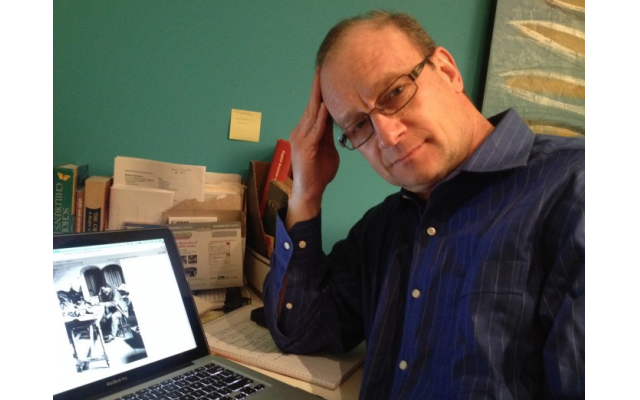Doomscrolling for the Latest Threat
Today’s consumers of news are no more concerned with matters of war and peace, of science and medicine, and of the human condition in general than were previous generations.
Dave Schechter is a veteran journalist whose career includes writing and producing reports from Israel and elsewhere in the Middle East.
I was interviewed recently for a British podcast that promotes political and media literacy, primarily for students and young adults in the United Kingdom.
In the course of that conversation, which focused on antisemitism in America, I was asked how news coverage has changed over the course of my professional career.
To my way of thinking, today’s consumers of news are no more concerned with matters of war and peace, of politics and economics, of science and medicine, and of the human condition in general than were previous generations.
As I have said to other audiences: What has changed is less the subjects in the news than the technology available to transmit information, today in a quantity and at a speed barely conceivable when I drew my first paycheck.
My parents were born into a world shaped by newspapers, magazines, and radio. Television was part of the mix when I came along. My children have grown up in a global society connected through the internet.
I grew up reading newspapers, from the front page to the sports results and most everything in between. I listened to all-news radio and watched the network and local newscasts. When the internet entered my cable television newsroom, I could not decide whether it was the greatest waste of time ever created or the greatest technological development since the atom was split. It has become both, the yin to its own yang.
Which brings me to a term some of you may be unfamiliar with — “doomscrolling,” the difficult-to-control urge to use the technology at your disposal to check the news at any and all hours, to stay current on the trials and tribulations of our time. I remain a constant, but generally dispassionate consumer of news, a practice grounded in decades of self-imposed professional responsibility. For others, however, this can have toxic consequences, particularly before going to sleep.
The origin of the term doomscrolling is traced to a 2018 post on Twitter, a platform that allows you to create your own information aggregation. (My feed provides a steady stream of state, national, and international news, affairs in the Jewish world and Israel, and soccer.)
Pamela Rutledge, director of the California-based Media Psychology Research Center, told the BBC that doomscrolling “really just describes the compulsive need to try and get answers when we’re afraid.” New information must be assessed to determine whether it constitutes a threat. “We are biologically driven to attend to that,” Rutledge said.
A study by University of Florida advertising researchers, published by the American Psychological Association, linked the condition to what is known in shorthand as FOMO (fear of missing out). “Doomscrolling refers to a state of media use typically characterized as individuals persistently scrolling through their social media newsfeeds with an obsessive focus on distressing, depressing, or otherwise negative information,” the study reported.
Not only that, but as humans, “we have a natural tendency to pay more attention to negative news,” Mesfin Bekalu, a research scientist at the Lee Kum Sheung Center for Health and Happiness at Harvard’s T.H. Chan School of Public Health, told Wired magazine.
In the past two years, the menu of negative news has included a bitterly contested election, an assault on the nation’s capitol, a global pandemic, protests sparked by racial injustice, a seemingly unending series of natural disasters, and at present, Russia’s military invasion of Ukraine.
COVID-19 exacerbated the problem; not just the rapidly changing nature of the virus and the frequently updated precautions, but also the amount of time people were isolated from normal personal contact with colleagues, friends, and family.
I blame neither the news media nor the internet for doomscrolling. When a restaurant puts a ridiculously large portion of food on your plate, you are under no obligation to eat all of it. When journalism serves up a large amount of information, you can decide which and how much of it you will consume, and when.
You can push back from the table and, if you feel yourself falling down the proverbial rabbit hole, place your phone more than an arm’s length away, take a walk, read a book, watch an old movie, or just go to sleep.
Don’t worry. All of that worrisome news, and then some, will be there when you wake up.
- From Where I Sit
- Opinion
- Dave Schecter
- United Kingdom
- Anti-Semitism
- doomscrolling
- social media
- TV
- television
- Radio
- Internet
- 24-hour news cycle
- CNN
- Fox News
- Pamela Rutledge
- Media Psychology Research Center
- American Psychological Association
- University of Florida
- FOMO
- Mesfin Bekalu
- Lee Kum Sheung Center for Health and Happiness
- Harvard’s T.H. Chan School of Public Health
- Wired Magazine
- Ukraine
- russia




comments